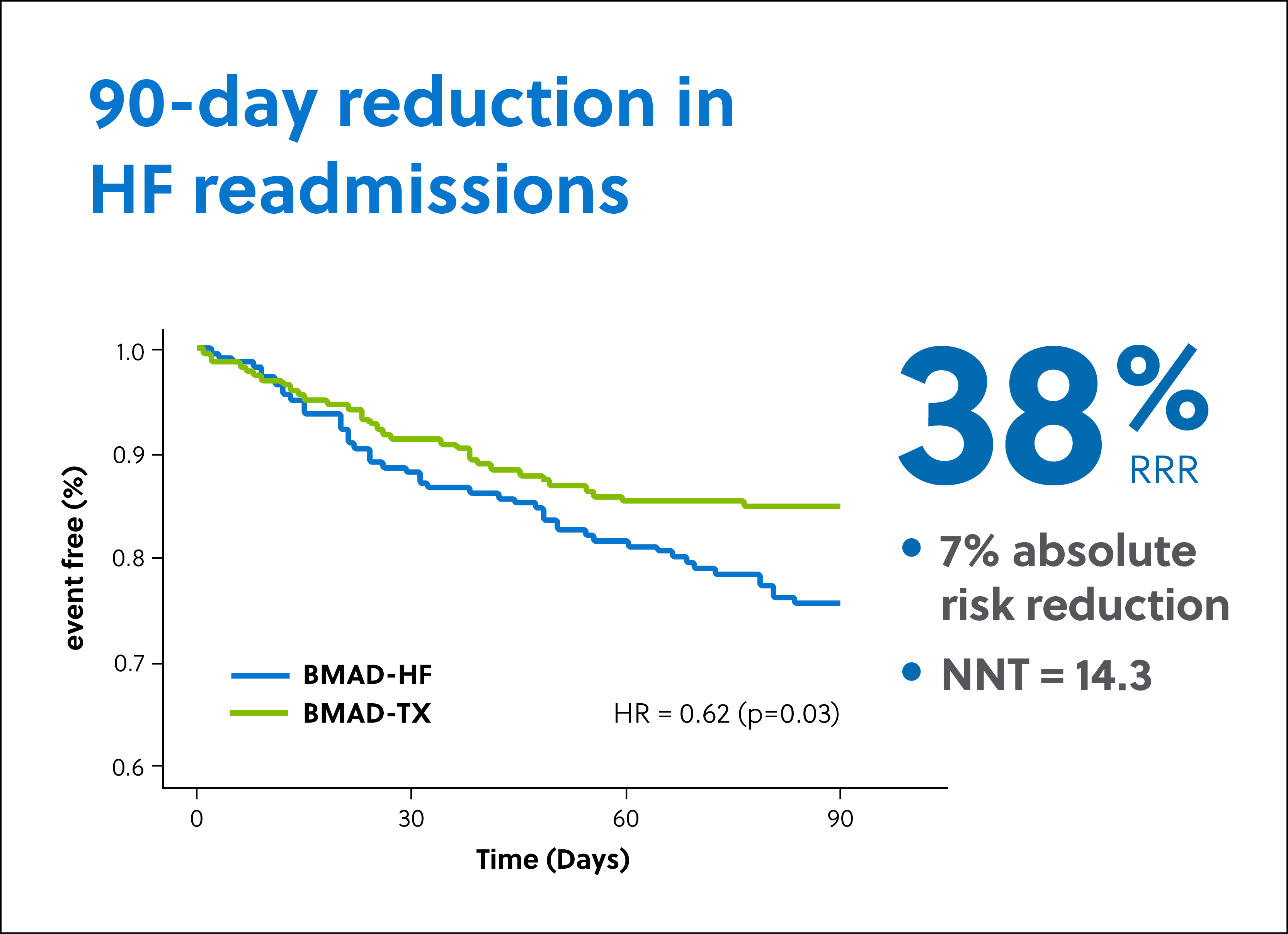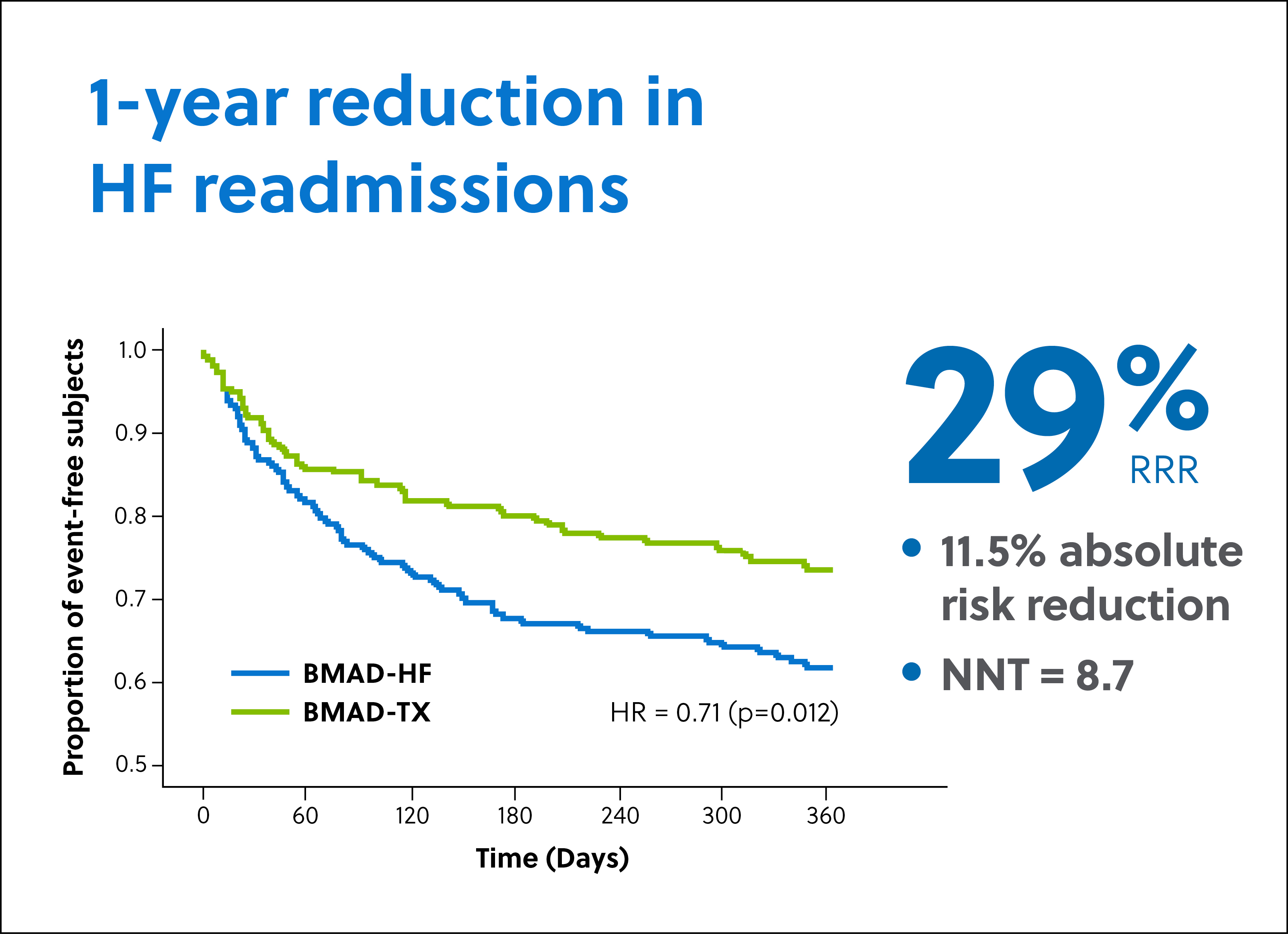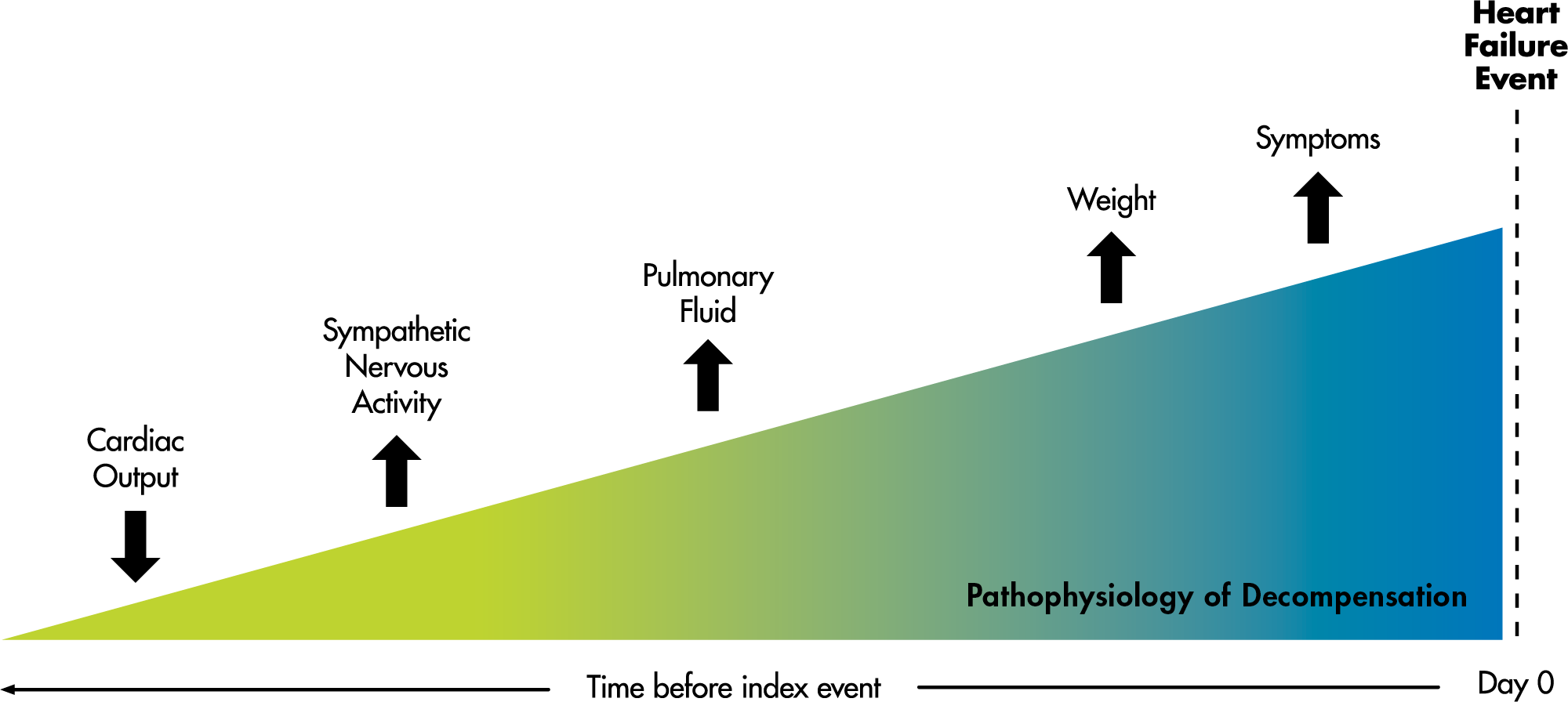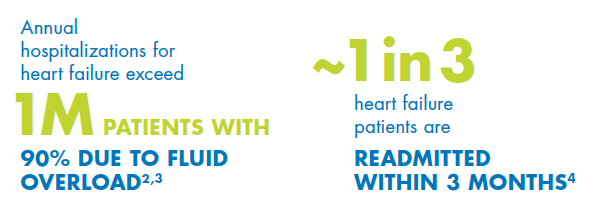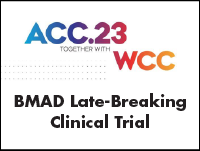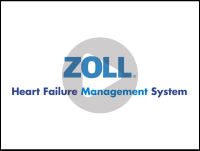ZOLL Heart Failure Management System
Featured
BMAD Trial Results:
Reduce Readmission and Improve Outcomes with ZOLL HFMS
Published in JACC Heart Failure, results from the Benefits of MicroCor in Ambulatory Decompensated Heart Failure (BMAD) Trial demonstrate that the use of ZOLL® Heart Failure Management System* (HFMS) reduces 90-day heart failure readmissions by 38%.1 Follow up results show a lasting 29% readmission reduction out to 1-year.8
|
|
|
|
Intervene Before HF Readmission with ZOLL HFMS: A Physician's Perspective
Invasive cardiologist, Dr. Fahmi J. Farah, MD, and one of her patients share how ZOLL HFMS impacts heat failure treatment and readmission rates.
Early Pulmonary Fluid Detection and Improved Outcomes
Pulmonary fluid can accumulate days before patients experience noticeable symptoms, and can be an early indicator of a heart failure decompensation event.5
How ZOLL HFMS Works
ZOLL HFMS is a non-invasive, patch-based device that uses novel radiofrequency technology for early detection of changes in pulmonary fluid levels, an increase in which is an early indicator of heart failure decompensation.
- Radar waves can be used to measure interstitial edema, an early sign of heart failure
- Changes in signal path delay and strength indicate changes in fluid
- Waves are highly modulated by tissue hydration, producing a very sensitive, robust measurement known as Thoracic Fluid Index (TFI)
ZOLL HFMS also records, stores, and transmits additional patient data that can be used to inform care plans, including heart rate, respiration rate, activity, posture, and heart rhythm (ECG).
Heart Failure on the Rise
Heart failure is one of the largest clinical challenges facing healthcare, affecting nearly 6 million Americans, as reported in 2020.6 The current U.S. expenditure for heart failure exceeds $30 billion annually, with 60-80 percent related to hospitalization, and these figures are expected to grow in the future.7
Support for You and Your Patients
From prescription to timely alerts, ZOLL supports every step of the process so that your team can focus on optimizing care and improving outcomes.
ZOLL HFMS may benefit patients who:
- Have had an acute event for volume overload and have been effectively diuresed, are now stable, and will benefit from remote pulmonary fluid management to predictively prevent a recurrent hospitalization
- Have intermittent and/or poorly controlled dyspnea, orthopnea, edema, or other fluid overload-related symptoms
- Require GDMT pharmaceutical titration to control fluid overload
1Boehmer, J, Cremer, S, Abo-Auda, W. et al. Impact of a Novel Wearable Sensor on Heart Failure Rehospitalization: An Open-Label Concurrent-Control Clinical Trial. J Am Coll Cardiol HF. null2024, 0 (0). https://www.jacc.org/doi/10.1016/j.jchf.2024.07.022
2Costanzo MR, Ronco C, Abraham WT, et al. Extracorporeal Ultrafiltration for Fluid Overload in Heart Failure: Current Status and Prospects for Further Research. J Am Coll Cardiol. 2017;69(19):2428-2445.
3Fonarow GC, Abraham WT, Albert NM, et al. Factors identified as precipitating hospital admissions for heart failure and clinical outcomes: findings from OPTIMIZE-HF. Arch Intern Med. 2008;168(8):847-854.
4Khan MS, Sreenivasan J, Lateef N, et al. Trends in 30- and 90-Day Readmission Rates for Heart Failure. Circ Heart Fail. 2021;14(4):e008335.
5Adamson PB. Pathophysiology of the transition from chronic compensated and acute decompensated heart failure: new insights from continuous monitoring devices. Curr Heart Fail Rep. 2009 Dec;6(4):287-92.
6Virani SS, Alonso A, Benjamin EJ, Bittencourt MS, Callaway CW, Carson AP, et al. Heart disease and stroke statistics–2020 update: a report from the American Heart Association. Circulation. 2020;141(9):e139-596.
7Desai AS, Stevenson LW. Rehospitalization for heart failure: predict or prevent?. Circulation. 2012;126(4):501-506.
8Boehmer, J. (2025) Reduced heart failure rehospitalization at 1 year for patients wearing a radiofrequency based sensor [Abstract]. In Proceedings of the THT 2025 Conference. Boston, MA.



